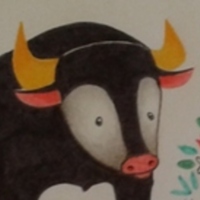Browse Items (22 total)
- Collection: Global Storytelling Project
Sort by:
Korean: 거북이와 토끼 [geobug-iwa tokki] The Rabbitt and the Turtle
This story is a traditional Korean story based on Aesop's Fable "The Tortoise and The Hare." In the story, the two animals run a race. Just like "The Tortoise and The Hare," the Rabbit falls asleep during the race, and the Turtle wins.
About…
About…
Korean: 어리석은 나이 자랑 [eoliseog-eun nai jalang] Foolish Boasting About Age
In this traditional Korean folktale, a bird, monkey, and elephant lived near an old tree. One day, while swinging on the tree, the three friends fought over who got to stay on the swing the longest. The elephant claimed he should swing the most since…
Basque-Euskera: Txanogorritxu-Little Red Riding Hood
This version of Little Red follows Brothers Grimm’s story: both Little Red and Gramma get eaten by the big, bad wolf, but they are miraculously rescued by a huntsman or a woodcutter who open the wolf’s belly. This ending is more suitable for younger…
Japanese: Ame Nimo Makezu
The poem is entitled Ame Nimo Makezu “not losing to the rain”. It is one of the most famous and influential pieces. This simple poem inspires hundreds and thousands of people to this day. The poem depicts the ideal person in a listing manner –…
Spanish: Caperucita roja y el lobo feroz-Little Red Riding Hood and the Bad Big Wolf
This version of Little Red follows Brothers Grimm’s story: both Little Red and Gramma get eaten by the big, bad wolf, but they are miraculously rescued by a huntsman or a woodcutter who open the wolf’s belly. This ending is more suitable for younger…
Tags: Little Red Riding Hood, Spain, Spanish
Spanish: La historia del toro Fernando-The Story of Ferdinand the Bull
Fernando lives with his mother and other bulls in a dehesa in a small Spanish village. Unlike the other bulls who want to be the protagonists at the famous bullfights in Seville, Fernando likes to sit under his favorite cork tree smelling the sweet…
Galician: Negra sombra-Black Shadow
“Negra sombra” [Black Shadow] is one of the poems in the collection Follas Novas [New Leaves] published in 1880. This poetry collection, together with Cantares gallegos [Galician Songs] is widely considered as one of the foundational works in…
Galician: Adiós ríos, adiós fontes-Goodbye Rivers, Goodbye Fountains
This is a well-known poem by Galician writer Rosalía de Castro (Santiago de Compostela, 1837-Padrón, 1835). The speaker of the poem says goodbye to his homeland, his house, his loved one, before migrating to Latin America. The poetry collection…
Hebrew: We Shall Overcome
Based upon the refrain that slaves sang in the field, “I’ll be all right someday,” Reverend Charles Albert Tindley published ”I’ll Overcome Someday” in 1901. In 1945, workers striking against the American Tobacco Company sang ”We will overcome, and…
Russian: Красная Шапочка [Krasnaya Shapochka] Little Red Riding Hood
This fairy tale, originally recorded (and modified) in French by Charles Perrault in 1697, was first translated into Russian in 1768. French was the court language in Russia and required knowledge for the children of the noble families, so the first…
Featured Item
Spanish: La historia del toro Fernando-The Story of Ferdinand the Bull

Fernando lives with his mother and other bulls in a dehesa in a small Spanish village. Unlike the other bulls who want to be the protagonists at the…